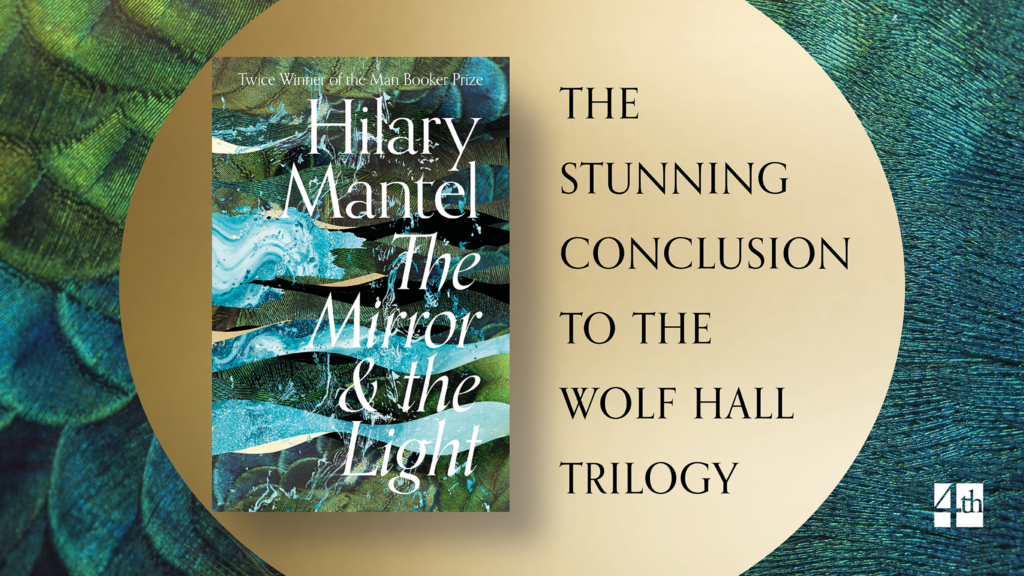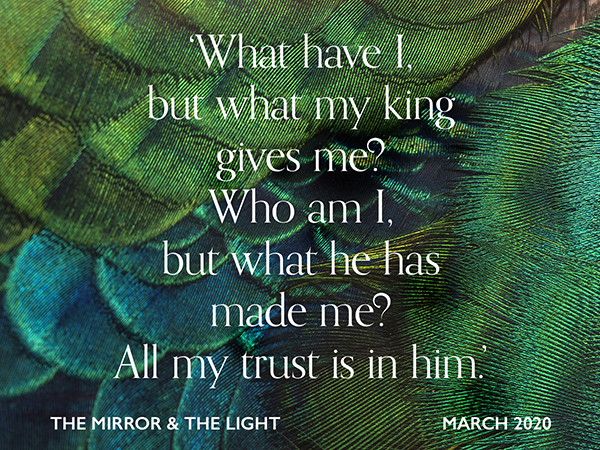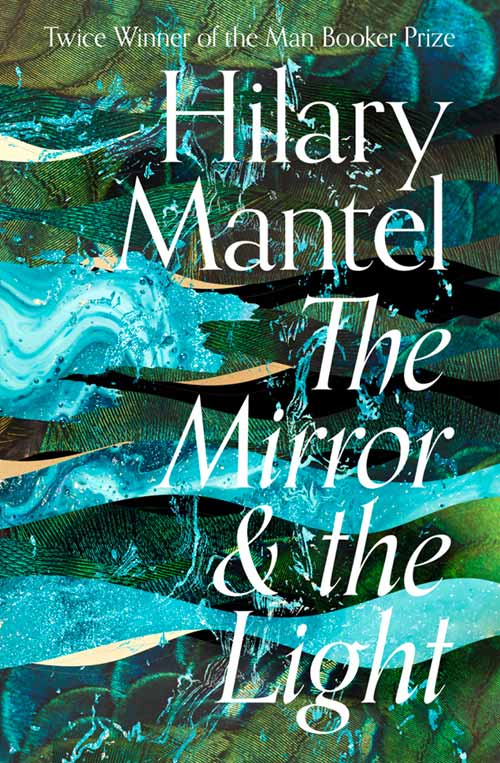Nothing makes a book more readable than discovering that a world a million miles away – or five hundred years ago – shares the same concerns as our own.

A DIVIDED NATION
Throughout both volumes, Cromwell worries about conflicts with Europe and divisions across England; about traditionalism and false rumours, about scapegoats and corrupt leaders and the lack of protection for vulnerable members of society.
He appears to be fond of England – he chose to return, remain and start a family there, even while thinking of it as ‘this miserable rainy island at the edge of the world’ – but he despairs of English ways. At the execution of the prophetess Elizabeth Barton, Cromwell grieves that ‘in England there is no mercy for the poor. You pay for everything, even a broken neck.’ Having travelled across Europe, he sees England as filled with dishonest, superstitious fools, a country of ingrained habit and fear, where ‘there cannot be new things
… There can be old things freshly presented, or new things that pretend to be old.’ Even the usually cheerful Wolsey sees England as ‘always a miserable country, home to an outcast and abandoned people’, while the King’s Fool insists, ‘What’s one fool? England is full of them.’
Arguing with Thomas More, Cromwell blames the English temperament on the meteorological conditions:
The world corrupts me, I think. Or perhaps it’s just the weather. It pulls me down and makes me think like you … The spectacles of pain and disgrace I see around me, the ignorance, the unthinking vice, the poverty and the lack of hope, and oh, the rain – the rain that falls on England and rots the grain, puts out the light in a man’s eye and the light of learning too … I truly believe I should be a better man if the weather were better. I should be a better man if I lived in a commonwealth where the sun shone and the citizens were rich and free. If only that were true, Master More, you wouldn’t have to pray for me nearly as hard as you do.
Cromwell’s frustration at More’s stubbornness and blind convictions is recognisable in our modern times:
Why does everything you know, and everything you’ve learned, confirm you in what you believed before? Whereas in my case, what I grew up with, and what I thought I believed, is chipped away a little and a little, a fragment then a piece and then a piece more. With every month that passes, the corners are knocked off the certainties of this world: and the next world too.

And if not More’s certainty, then his willingness to spread lies and dissent purely because he can feels uncomfortably close to us:
He thinks, imagine living inside the Lord Chancellor’s head. Imagine writing down such a charge and taking it to the printer, and circulating it through the court and through the realm, putting it out there to where people will believe anything; putting it out there, to the shepherds on the hills, to Tyndale’s ploughboy, to the beggar on the road.
The Parliament of 1536 which frustrates Cromwell’s efforts to help the vulnerable may sound even more familiar:
Parliament knocks back his new poor law. It was too much for the Commons to digest, that rich men might have some duty to the poor; that if you get fat, as gentle- men of England do, on the wool trade, you have some responsibility to the men turned off the land, the labourers without labour, the sowers without a field … It is an outrage to the rich and enterprising, to suggest that they should pay an income tax, only to put bread in the mouths of the work-shy. And if Secretary Cromwell argues that famine provokes criminality: well, are there not hangmen enough?
But it is the break with Rome which we may, unfortunately, recognise most closely, a muddled battle to Take Back Control – although in the sixteenth century, Cromwell was a dedicated European who understood well that England could not stand alone, needing instead to find allies and strengthen bonds within a reconfigured Europe, away from Rome’s domination. Cromwell reassures Cranmer that ‘once the assets are given out … well, once they have been directed to the pockets of Englishmen, they will not revert to the pockets of the Pope’, certain as he may be that many of those assets will be kept by him. To be confident of England’s capabilities, Cromwell knows that ‘it is time to say what England is, her scope and boundaries: not to count and measure her harbour defences and border walls, but to estimate her capacity for self-rule’, even while knowing privately that the King’s ideas about power and strength are far from accurate:
How can he explain to him? The world is not run from where he thinks. Not from his border fortresses, not even from Whitehall. The world is run from Antwerp, from Florence, from places he has never imagined; from Lisbon, from where the ships with sails of silk drift west and are burned up in the sun. Not from castle walls, but from counting houses, not by the call of the bugle but by the click of the abacus, not by the grate and click of the mechanism of the gun but by the scrape of the pen on the page of the promissory note.

Already it is the financial houses that run the world. Europe is vital. The English leaders just don’t seem to realise it yet. Cromwell knows that deals are no longer done by public marriages and oaths, but instead by ‘two men in small rooms. Forget the coronations, the conclaves of cardinals, the pomp and processions. This is how the world changes: a counter pushed across a table, a pen stroke that alters the force of a phrase.’
By the end of Bring Up the Bodies, Cromwell’s fatigue of Henry’s battles is perhaps the most topical feeling of all. While he wants to engage with his son about the jobs that need doing, at the same time Cromwell knows that ‘he has no time now to explain the world to the simple and the young … Sometimes peace looks like war, you cannot tell them apart; sometimes these islands look very small.’ He despairs of ridiculous rumours and quarrels across the country (‘indeed, who can doubt that everything would be different and better, if only England were ruled by village idiots and their drunken friends?’) and he wonders what his job might have been, in times when those rumours and quarrels weren’t spread so easily, observing ‘a moment of jealousy towards the dead, to those who served kings in slower times than these; nowadays the products of some bought or poisoned brain can be disseminated through Europe in a month’.
Mostly Cromwell feels tired, of pointless, mindless, endless battles for control which do nothing to improve the country for most of the people in it, as he thinks of More:
‘Do you know what I hate? I hate to be part of this play, which is entirely devised by him. I hate the time it will take that could be better spent, I hate it that minds could be better employed, I hate to see our lives going by, because depend upon it, we will all be feeling our age before this pageant is played out.‘
At the current moment in history, is there any emotion more recognisable?
The Mirror and the Light is out now.


4thestatebooks